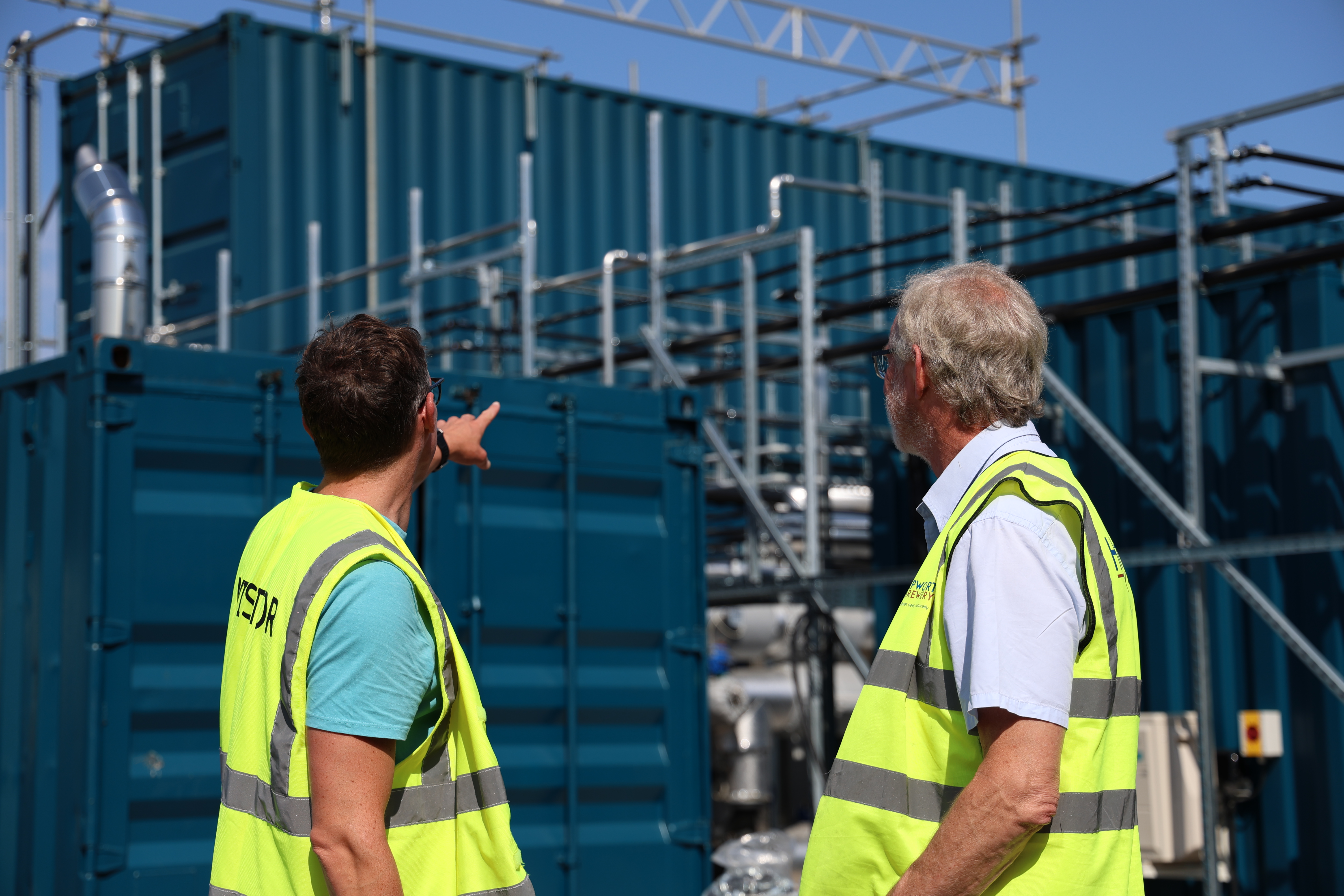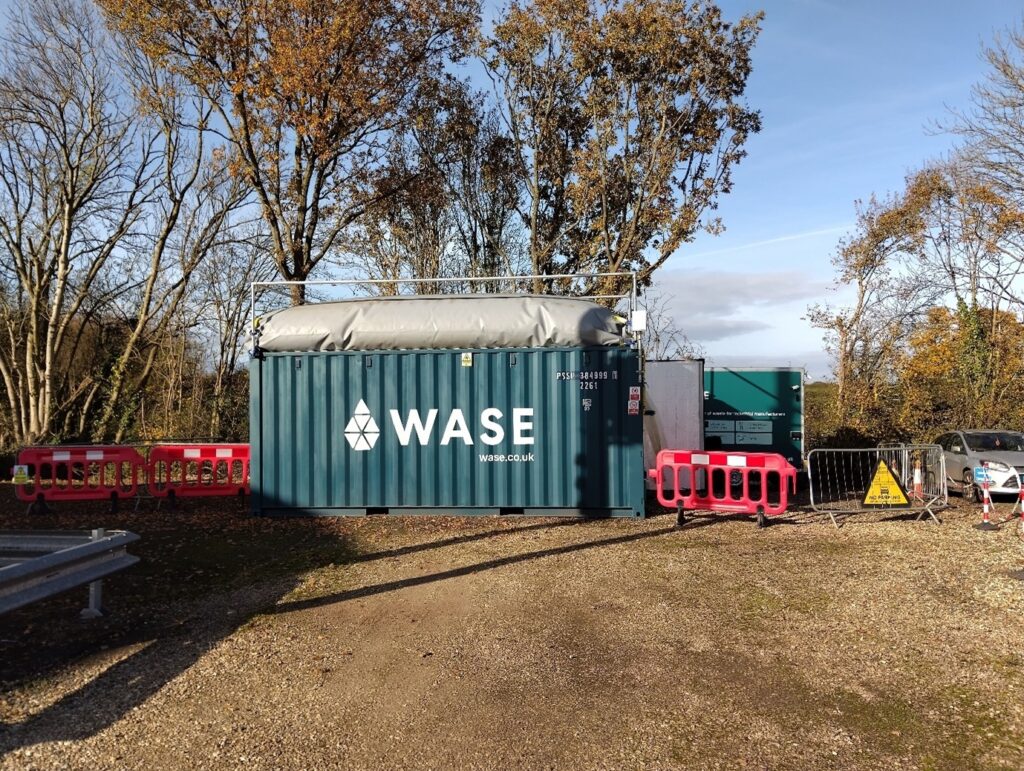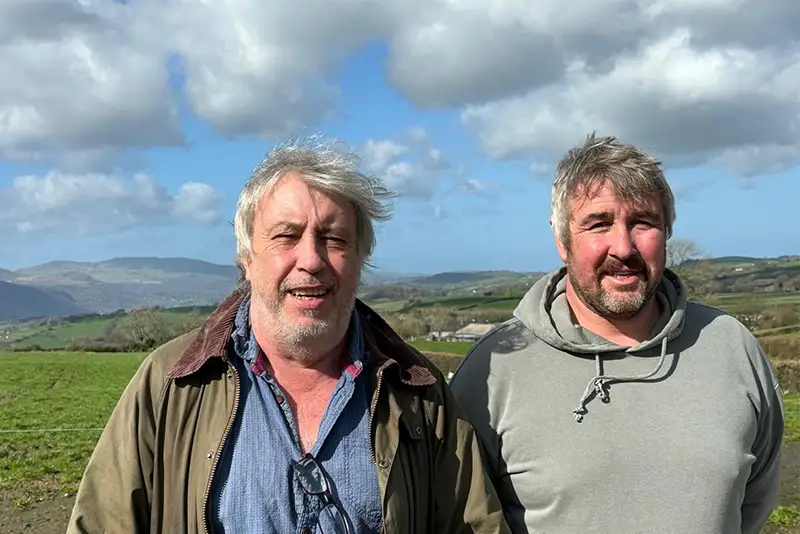Hepworth Brewery – The UK’s First Fully Circular Wastewater-to-Energy System
We are helping the brewery treat their wastewater on the premises, turning it into biogas on-site and avoiding costly collection and disposal.

The challenge
COOK, the award-winning frozen meals company, has grown from a single shop in Farnham to over 100 locations across the UK. As one of the country’s first certified B Corps, COOK has long prioritised people and the planet, undergoing rigorous assessments to ensure they meet the highest standards of social and environmental performance. As their operations scaled, so did the challenge of responsibly managing food by-products. They were looking for a more effective, circular solution – one that could reduce reliance on grid-sourced green gas, cut waste treatment costs, and lower their environmental footprint. That’s where WASE came in.
Our impact
By deploying the miniWASE reactor at COOK, we achieved significant environmental and operational gains. Transport-related emissions were eliminated by treating waste on-site, removing the need for off-site tanker transport. The system also enhanced circularity by converting leftover pudding waste into energy-rich biogas that could be used directly on-site. This approach not only reduced COOK’s environmental footprint but also maximised waste-to-energy efficiency, extracting more usable energy from the same volume of waste.
| Metric | miniWASE EMR | Traditional AD |
|---|---|---|
| Organic loading rate (OLR) | 10.5 kg VS/m³/day | 3.5 kg VS/m³/day |
| Hydraulic Retention Time (HRT) | 5.53 days | 25 days |
| Methane Content | 61% | 55% |
| Gas Yield | ~20% higher | baseline |
| COD Removal | 84%-96% | ~typical range: 70-85% |
The system was set-up quickly and started generating gas very quickly too. This is a really good example of the circularity and sustainability we are looking to achieve at COOK. The next steps for us now are to start working on the larger installation opportunity at our principle production site in Sittingbourne, where we should be able to unlock considerable carbon reductions and cost savings.
Richard Pike, Technical and Sustainability Director at COOK
The pilot trial at COOK Puddings in Ilton demonstrated that the miniWASE EMR can remove up to 90% of COD from a combined waste stream while generating approximately 340kW of energy per cubic metre processed. By treating waste on-site, COOK can significantly cut operational costs, reduce transport-related emissions, and boost energy resilience with on-site biogas production. This successful pilot marks a key step toward broader deployment, offering a scalable, circular solution for food manufacturers aiming to reduce carbon, minimise waste, and maximise the value of their by-products.


We are helping the brewery treat their wastewater on the premises, turning it into biogas on-site and avoiding costly collection and disposal.

We treat cattle slurry for compliance, generating renewable energy to power the farm and create new revenue streams.

If you’re interested in finding out more about our technology or how we could work together, we’d love to hear from you.
"*" indicates required fields